Photographs: Reuters
Deepak Parekh, the head of Housing Development Finance Corporation, who has been vocal about the ill-effects of drift in country's leadership talks about the issue and what needs to be done with Karan Thapar on television channel CNN-IBN's Devil's Advocate programme.
Edited excerpts:
Many people say 2011 was one of the worst years faced by any government for a long time. Others say the country has ended up depressed, some even say disillusioned.
I agree. 2011 is a year to forget, for India and the whole world. We should now think positively and look at options and opportunities.
In the open letter you wrote on January 17 (2011), you spoke of the collapse in the self-confidence and self-belief of Indians in themselves and in the state. Twelve months later, has that collapse of self-confidence got worse?
It is at a low end. The more you criticise the government, the more negative you are about the government, the confidence around you, the confidence among the people of the country, also takes a dip.
A self-fulfilling, vicious spiral?
Absolutely. We have to be more positive. It's a new year. Let's look at how we can get back to eight per cent GDP growth.
...
'We need one party running the country, not 10'
Image: Azim Premji says there is complete absence of decision making.Photographs: Reuters
After a succession of scandals and scams, has the government's authority and credibility also been damaged?
It has been. Part of it is the way politics works in our country. We have a coalition government and partners with minor seats, the tail wagging the dog.
Then, the Opposition has also not played a positive role. Disagreement is part of democracy but not distortion, not breaking up Parliament every day.
What we saw in Parliament this year gives you a negative feeling on democracy. No decisions can be taken if for every policy issue the ruling party puts up, the Opposition opposes by disrupting Parliament.
We need a better system. You must have one party running the country and not 10 different parties joining hands. It doesn't work, it doesn't do good for progress.
One key issue in both the open letters you wrote last year was what you called the widespread governance deficit. One of your colleagues, Azim Premji, said, 'The biggest concerns now are government issues and the complete absence of decision making in the government.' What does this mean for industrialists, for investment and the economy?
When we talk of governance deficit, we do so at two levels. One is the petty corruption everyone in India faces.
...
'We need one party running the country, not 10'
Image: Parekh says he had to pay a bribe for a death certificate.Photographs: Reuters
The other is the corruption at the senior level - large amounts like the Commonwealth Games or the telecom scandals or the Aadarsh building in Bombay.
The common man in the country can't get anything done without paying a bribe. I, myself, had to pay for a death certificate. Birth certificates, passports, driving licences... this is corruption at low levels. The salary levels of people are abysmally low.
How do you expect a policeman on the street to keep law and order, to protect the citizens, when he lives in slums or slum-like conditions?
He doesn't have enough money to feed his children. We said we need some redressal mechanism for the common man and particularly we need police reform, judicial reform and electoral reform.
You also wrote about what you called policy paralysis, that the government talks about critical reforms but is unable to deliver these. In that context, how damaging was the debacle over FDI in retail, where the Prime Minister endorsed the policy but Sonia Gandhi was silent, the allies opposed and the government couldn't go ahead?
It was a bad day for Indian democracy and a sad day for Indian business. FDI in retail will help the farming community. We need to invest in farming.
...
'We need one party running the country, not 10'
Image: He says FDI in retail will help farmers.Photographs: Reuters
We need much more research and development, and technology and we need to upgrade our farmers. FDI in retail will do that to some extent.
When you and your fellow business colleagues met the Prime Minister on December 22, he pointedly bristled at some of the critical comments you had made. In fact, the PM's office issued a formal statement that, 'It is little disappointing to hear negative comments emanating from our business leadership that government policy is causing slowdown and pessimism in the industrial sector.'
The PM's point was that if all of you have negativism and are totally pessimistic about growth, about the future, then what will happen to the country?
All of us who were present had stakes and are concerned. This is the right time for Indians to outshine others and we have not taken that advantage.
Harsh Mariwala, the president of Ficci, said shortly afterwards, 'There is a problem of trust between the government and the corporate sector.'
In 2011, that trust, that association one must have to succeed in a country is diminished. For a variety of reasons. Both parties have to reach out.
...
'We need one party running the country, not 10'
Image: Infrastructure needs focus, says Parekh.Photographs: Reuters
Mariwala has also said business confidence today is lower than in 2008, and that was when Lehman Brothers and the recession hit us.
He is right. If you look around, fresh investments are not happening. We need massive investments in India, both from the public and the private sector, and neither are investing.
They feel the risk of investment, because the approvals take a long time. If the project doesn't take off and they lose a lot of money, they will be pointed at and blamed.
What are the top three things you want the government to do?
You need more than three things but the first is investment - new industries in infrastructure, roads, airports, ports, power - by both the private and public sector.
The implementation process, the approval process, has to be streamlined much more than what it is today. We don't know what the project cost will be, we don't know when it will complete and start production, because of all the uncertainties of different approvers.
Remove the uncertainties, give us a timetable by when we can get our approvals and permissions, whether it is coal or environment or water.
Second, interest rates have to come down to spur growth. Third, there are dozens of projects stuck halfway, particularly in the power sector.
...
'We need one party running the country, not 10'
Image: We need to push social programmes in India, he says.Photographs: Reuters
We suggested when we met the PM, why don't you have someone in the PM's Office look at 10 marquee projects and let them analyse what are the decisions necessary and let's push these.
How important is the need to push through critical reforms the government has spoken about but which are stalled either in Parliament or caught up in party politics - DTC, GST, pension, banking, insurance?
All very critical, maybe not for me but for my kids. If they start putting these Acts in place, then it will help in the future. The other thing is, the government must reduce their expenditure.
Also, we have a large number of social development projects, rural programmes. We must push them: 600 million or so live in rural India. How do we make them put more money in their pockets, so they do more consumption?
Can we hope to return to eight per cent growth, leave aside 10 per cent, if these areas of concern are not tackled and if the policy paralysis continues?
We will then have to be satisfied with seven per cent. The monsoons have been good for the last two years, we have had agricultural growth of 3-4, 4.5 per cent, which ensures at least seven per cent. If policy paralysis continues and agricultural growth doesn't happen, you could slip below seven.
...
'We need one party running the country, not 10'
Image: Parekh says Manmohan Singh has been a blessing for India.Photographs: Reuters
More and more Indians are looking at investing abroad. But the market is in India. Everyone knows the desire of Indian businessmen is first to invest here.
Huge market, huge population, large middle class, urbanisation happening. All factors are positive. Only if we can get our act together.
So, the budget is your big hope?
The big hope.
Are you disappointed with the Prime Minister?
He has to take a much broader, quicker decision-making effort. And, he has to push reforms. He's been a blessing for India...
But needs to do more?
He wants to. I am convinced he will. His hands are tied because his coalition partners don't support him, the Opposition doesn't support him.
I am confident he will. You will see a different set of guidelines and difference in speed at which decisions are taken after February.
I am very hopeful that the PM and his team have taken a decision that, 'We will not let 2011 continue'.
Are you really hopeful today that Manmohan Singh will live up to your expectations or to the promises he has made to you?
I am confident he will. You will see a different set of guidelines and difference in speed at which decisions are taken after February. I am very hopeful that the PM and his team have taken a decision that, 'We will not let 2011 continue'.

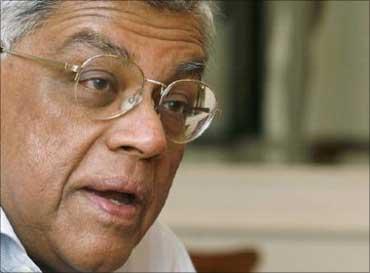

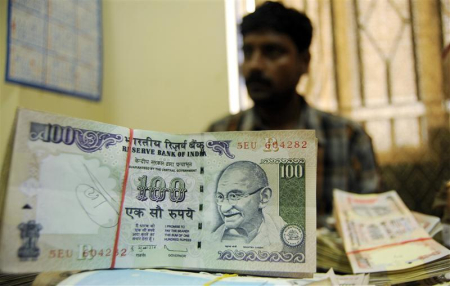

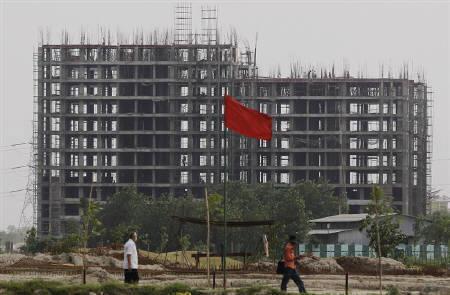
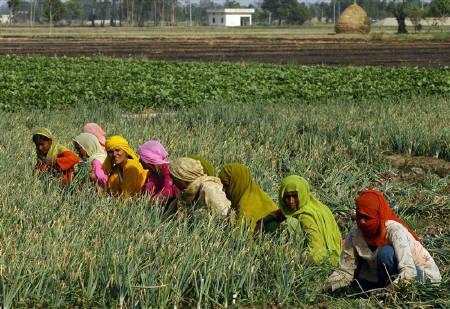
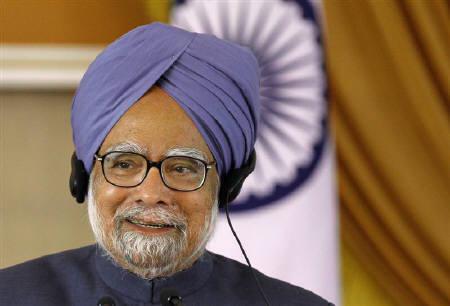

article